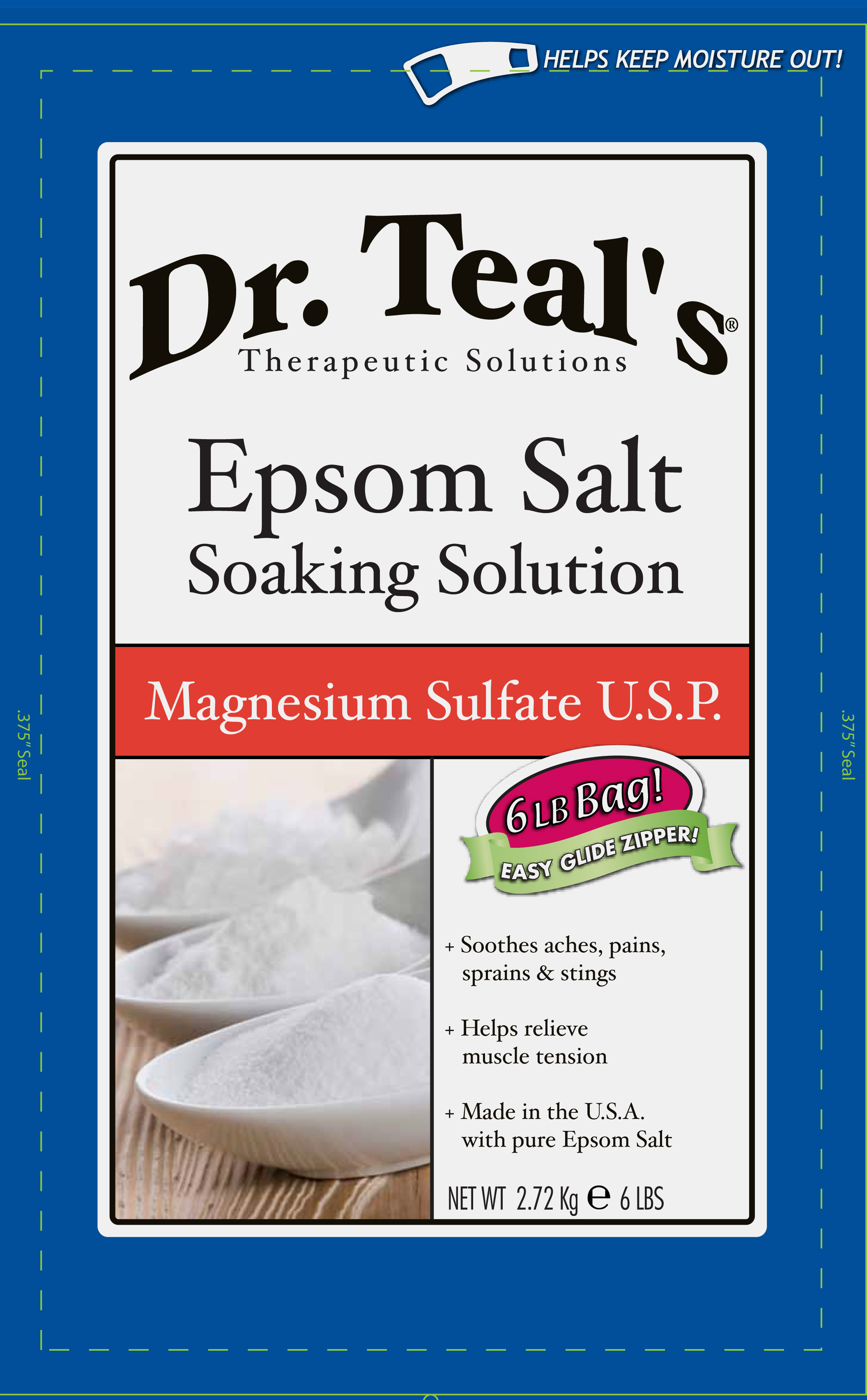Epsom Salt Soaking Solution | Magnesium Sulfate Granule while Breastfeeding

What is Epsom Salt Soaking Solution | Magnesium Sulfate Granule used for?
Purpose: Uses External: Relieves pain from minor sprains and bruises Internal: Relieves occasional constipation (irregularity) generally produces bowel movement in 1/2 to 6 hours.
Is Epsom Salt Soaking Solution | Magnesium Sulfate Granule safe to use while breastfeeding? Can it interfere with growth and development of my kid?

Epsom Salt Soaking Solution | Magnesium Sulfate Granule Breastfeeding Analsys
Magnesium sulfate while Breastfeeding
SafeCAS Number: 7487-88-9
El magnesio es un componente natural de la leche.Se utiliza en el tratamiento y profilaxis de la eclampsia y migraña (Pringsheim 2012), en la hipomagnesemia, en ciertas arritmias y como laxante osmótico. Su concentración en la leche es muy estable y depende poco de la alimentación y otros factores, incluida la administración de sulfato de magnesio a la madre: los niveles de magnesio en leche de madres tratadas con sulfato de magnesio intravenoso fueron de 6,4 mg/L frente a 4,8 mg/L en las no tratadas (Cruikshank 1982, Dorea 2000). Su baja biodisponibilidad oral dificulta el paso a plasma del lactante a partir de la leche materna ingerida (Morris 1987) y se considera seguro su uso durante la lactancia (Idama 1998). Se ha observado retraso en al lactogénesis II (subida de la leche) en mujeres tratadas con sulfato de magnesio antes o durante el parto para tratar o prevenir la eclampsia (Haldeman 1993) sí como hipotonía en los recién nacidos, lo que podría interferir en la estimulación mamaria adecuada (Riaz 1998) pero esto puede ser contrarrestado por una decisión materna firme y un apoyo eficaz a la madre (Cordero 2012). Academia Americana de Pediatría: medicación usualmente compatible con la lactancia.Listado de medicamentos esenciales OMS 2002: compatible con la lactancia.
Epsom Salt Soaking Solution | Magnesium Sulfate Granule Breastfeeding Analsys - 2
Magnesium sulfate while Breastfeeding
CAS Number: 7487-88-9
Intravenous magnesium increases milk magnesium concentrations only slightly and oral absorption of magnesium by the infant is poor, so maternal magnesium therapy is not expected to affect the breastfed infant's serum magnesium. Although intravenous magnesium sulfate given prior to delivery might affect the infant's ability to breastfeed, intention to breastfeed may be a more important determinant of breastfeeding initiation.[1] Postpartum use of intravenous magnesium sulfate for longer than 6 hours appears to delay the onset of lactation.[2][3]
I am nursing mother and I have already used Epsom Salt Soaking Solution | Magnesium Sulfate Granule, what should I do?
As usage of Epsom Salt Soaking Solution | Magnesium Sulfate Granule is mostly safe while breastfeeding hence there should not be any concern. In case of any change in behavior or health of your baby you should inform your health care provider about usage of Epsom Salt Soaking Solution | Magnesium Sulfate Granule else no further action is required.
My health care provider has asked me to use Epsom Salt Soaking Solution | Magnesium Sulfate Granule, what to do?
Definitely, Epsom Salt Soaking Solution | Magnesium Sulfate Granule is safe in lactation for baby. No wonder your doctor has recommended it.
If I am using Epsom Salt Soaking Solution | Magnesium Sulfate Granule, will my baby need extra monitoring?
No extra baby monitoring required while mother is using Epsom Salt Soaking Solution | Magnesium Sulfate Granule
Who can I talk to if I have questions about usage of Epsom Salt Soaking Solution | Magnesium Sulfate Granule in breastfeeding?
US
National Womens Health and Breastfeeding Helpline: 800-994-9662 (TDD 888-220-5446) 9 a.m. and 6 p.m. ET, Monday through Friday
UK
National Breastfeeding Helpline: 0300-100-0212 9.30am to 9.30pm, daily
Association of Breastfeeding Mothers: 0300-330-5453
La Leche League: 0345-120-2918
The Breastfeeding Network supporter line in Bengali and Sylheti: 0300-456-2421
National Childbirth Trust (NCT): 0300-330-0700
Australia
National Breastfeeding Helpline: 1800-686-268 24 hours a day, 7 days a week
Canada
Telehealth Ontario for breastfeeding: 1-866-797-0000 24 hours a day, 7 days a week
